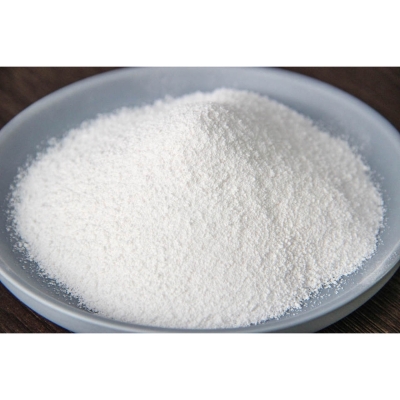-
Categories
-
Pharmaceutical Intermediates
-
Active Pharmaceutical Ingredients
-
Food Additives
- Industrial Coatings
- Agrochemicals
- Dyes and Pigments
- Surfactant
- Flavors and Fragrances
- Chemical Reagents
- Catalyst and Auxiliary
- Natural Products
- Inorganic Chemistry
-
Organic Chemistry
-
Biochemical Engineering
- Analytical Chemistry
- Cosmetic Ingredient
-
Pharmaceutical Intermediates
Promotion
ECHEMI Mall
Wholesale
Weekly Price
Exhibition
News
-
Trade Service
We are unlikely to perceive the food smell associated with the most recent meal, which helps us choose what to eat next
Passing a bakery on the corner of the street, you may be attracted by the sweet fragrance wafting from the front door
But according to a new study, the food you eat before passing by the bakery may affect your likelihood of stopping for sweets—not just because you are full
Scientists at Northwestern University in the United States have discovered that people's sensitivity to food smells is reduced by the food they have just eaten
The research titled "Small Perception Decision Affected by Motivational State" was published in the journal "Public Library of Science Biology" on August 26, 2021
Smell controls what we eat and vice versa
The study found that participants who had just eaten a meal of cinnamon buns or pizza were less likely to smell "matching with food" rather than non-matching smells
These findings suggest that, just as the sense of smell regulates what we eat, what we eat in turn regulates our sense of smell
Thorsten Kahnt, assistant professor of neurology, psychiatry, and behavioral sciences at Northwestern University Feinberg School of Medicine, said that feedback between food intake and the olfactory system may be Evolution is good
"Think about our ancestors wandering in the forest looking for food, they found and ate berries, and then became less sensitive to the smell of berries," Kaent said
Kaent said that although we don't see hunting-gathering adaptations in our daily decisions, the connection between our noses, what we are looking for, and what we can detect with our noses may still be very important
Through brain imaging, behavioral testing, and non-invasive brain stimulation, Kaent's laboratory has investigated how the sense of smell can guide learning and appetite behavior, especially when it is associated with mental illnesses such as obesity, addiction, and dementia
According to Laura Shanahan, a postdoctoral researcher in Kahnt's lab, there is very little research on how odor perception changes due to different factors
Pizza and Pine; Cinnamon and Cedar
To conduct this research, the research team developed a new task that asked participants to smell a mixture of food and non-food odors ("pizza and pine" or "cinnamon bun and cedar"-"a good match" And different smells)
Participants completed two tasks in the MRI scanner: the first time when they were hungry, and then after they ate a meal that matched the two odors
"While the MRI scanner was doing the first part of the experiment, I was cooking in another room," Shanahan said
Then, the research team calculated how much food odors are needed in the mixture at each stage, making participants think that food odors dominate
Through brain imaging, the research team provided further evidence for this hypothesis
.
MRI brain scans showed that similar changes occurred in the part of the brain that processes odors after meals
.
The brain's response to odors that match the odor of food is more "food-like" than its response to non-food odors
.
Apply research findings to future sleep deprivation research
The findings of this study will allow Kaent Labs to conduct more complex projects
.
Kahnt said that with a better understanding of the feedback loop between smell and food intake, he hopes to bring the full cycle of this project back to sleep deprivation, to see if lack of sleep can damage this cycle in some way
.
He added that with brain imaging technology, there are more questions about how adaptation affects the brain's sensory and decision-making circuits
.
"After a meal, the olfactory cortex no longer represents the food odor that matches the food like food, so adaptation seems to happen relatively early in the processing process," Kaente said
.
"We are tracking how this information changes and how other parts of the brain use this changed information to make decisions about food intake
.
"
references:
“Olfactory perceptual decision-making is biased by motivational state” by Laura K.
Shanahan, Surabhi Bhutani and Thorsten Kahnt, 26 August 2021, PLOS Biology .
DOI: 10.
1371/journal.
pbio.
3001374







